Military Mental Health Care
Military Life
Military Life is a series of books for service members and their families who must deal with the significant yet often overlooked difficulties unique to life in the military. Each of the titles in the series is a comprehensive presentation of the problems that arise, solutions to these problems, and resources that are of much further help. The authors of these bookswho are themselves military members and experienced writershave personally faced these challenging situations, and understand the many complications that accompany them. This is the first stop for members of the military and their loved ones in search of information on navigating the complex world of military life.
The Wounded Warrior Handbook: A Resource Guide for Returning Veterans by Don Philpott and Janelle Hill (2008).
The Military Marriage Manual: Tactics for Successful Relationships by Janelle Hill, Cheryl Lawhorne, and Don Philpott (2010).
Combat-Related Traumatic Brain Injury and PTSD: A Resource and Recovery Guide by Cheryl Lawhorne and Don Philpott (2010).
Special Needs Families in the Military: A Resource Guide by Janelle Hill and Don Philpott (2010).
Life After the Military: A Handbook for Transitioning Veterans by Janelle Hill, Cheryl Lawhorne, and Don Philpott (2011).
Military Mental Health Care: A Guide for Service Members, Veterans, Families, and Community by Cheryl Lawhorne-Scott and Don Philpott (2013).
Military Mental Health Care
A Guide for Service Members, Veterans, Families, and Community
Cheryl Lawhorne-Scott and Don Philpott
ROWMAN & LITTLEFIELD PUBLISHERS, INC.
Lanham Boulder New York Toronto Plymouth, UK
Published by Rowman & Littlefield Publishers, Inc.
A wholly owned subsidiary of The Rowman & Littlefield Publishing Group, Inc.
4501 Forbes Boulevard, Suite 200, Lanham, Maryland 20706
www.rowman.com
10 Thornbury Road, Plymouth PL6 7PP, United Kingdom
Copyright 2013 by Rowman & Littlefield Publishers, Inc.
All rights reserved . No part of this book may be reproduced in any form or by any electronic or mechanical means, including information storage and retrieval systems, without written permission from the publisher, except by a reviewer who may quote passages in a review.
British Library Cataloguing in Publication Information Available
Library of Congress Cataloging-in-Publication Data
Lawhorne-Scott, Cheryl, 1968
Military mental health care : a guide for service members, veterans, families, and community / Cheryl Lawhorne and Don Philpott.
p. cm. (Military life)
Includes bibliographical references and index.
ISBN 978-1-4422-2093-5 (cloth : alk. paper) ISBN 978-1-4422-2094-2 (ebook : alk. paper)
1. VeteransMental healthUnited StatesHandbooks, manuals, etc. 2. Veterans familiesUnited StatesHandbooks, manuals, etc. 3. SoldiersMental healthUnited StatesHandbooks, manuals, etc. 4. Psychology, MilitaryHandbooks, manuals, etc. I. Philpott, Don, 1946- II. Title.
UH629.3.L39 2013
355.345dc232012034879
 The paper used in this publication meets the minimum requirements of American National Standard for Information SciencesPermanence of Paper for Printed Library Materials, ANSI/NISO Z39.48-1992.
The paper used in this publication meets the minimum requirements of American National Standard for Information SciencesPermanence of Paper for Printed Library Materials, ANSI/NISO Z39.48-1992.
Printed in the United States of America
Foreword
S tay Fit, Stay Strong, Stay Resilient! This is not meant as merely a catch phrase or sound bite, but rather these words intend to serve as a military standard that both feeds and sustains our daily lifestyle!
Each of our service branches manages a resiliency program using the overarching model of Total Force Fitness (TFF). TFF is not a How To manual but rather a user-friendly, equal-opportunity framework to building a behavior, discipline, and level of fitness that sustains a lifestyle of resiliency. Our society has commonly narrowed how we view the word fitness. Particularly in our military community, we tend to associate fitness with a level of physical ability. Truthfully, this is linear thinking. There is so much more to staying fit than running, pushups, and obstacle courses. Dont get me wrong, physical fitness is definitely an important piece, but there are other vital areas of fitness that repair and fuel the mind, body, and spirit. Nutritional, Behavioral, Psychological, Environmental, Financial, Social, and Spiritual are other critical fitness domains that serve as active ingredients to a holistic menu in our daily lifestyle. Said another waywe need all of these to preserve a total force that is and can remain totally fit.
While prevention will always be the ultimate goal, unfortunately in our line of work that is sometimes unavoidable. We define resiliency as having the ability to overcome adversity or setback, rebound from an incident and return to a renewed level of optimal performance. I think you will find that our various resiliency programs provide valuable resources in overcoming adversity and building resiliency in the mind, body, and spirit. As you read through these chapters, it will be evident that resiliency plays a critical role in all phases of the process from initial injury/incident through rehabilitation to sustaining optimality.
While many wounds, injuries, and illnesses or common setbacks warrant a medicinal solution, one of the things my wife Lisa and I enjoy about a TFF lifestyle is that at some point, opportunities arise for alternative or complementary methods of therapy and rehabilitation. Drug-free examples are yoga, meditation, acupuncture, peer-to-peer engagement, even a therapy dog to mention a few.
With twenty-five glorious years of marriage, sixteen household moves, deployments across the years, and injury and loss within our own family, she and I use our personal experiences to project how resiliency has largely and positively impacted our family successes and recovery throughout our career. We believe that an individual, family, unit, or organization that adopts a TFF lifestyle will consistently maintain a greater state of health, wholesomeness, stability, and readiness.
Lastly, Lisa and I always enjoy the opportunity such as this one, to recognize all military families for your longstanding commitment and remarkable service and sacrifice in defense of our nation!
Stay Fit! Stay Strong! Stay Resilient!
Bryan and Lisa Battaglia
Sgt. Major Bryan Battaglia is the Senior Enlisted Officer, Joint Chiefs of Staff at the Pentagon.
Introduction
W i th tens of thousands of warriors returning from the wars in Iraq and Afghanistan every month, the Department of Defense (DoD) and Department of Veterans Affairs (VA) are almost overwhelmed by the task of providing adequate psychological and sociological support. One in three returning warriors has or is likely to develop serious mental health and/or psychological issues that make it difficult for them to adjust to a normal environment. As a result, many military marriages are ending in divorce, suicide rates among returning warriors are at record levels, and returning warriors make up a disproportionally high percentage of the unemployed and homeless. There is no single resource available that looks at all the problems these returning warriors and their families face. That is what the Military Guide to Mental Health aims to correct.
Mental health is how we think, feel, and behave. It helps determine how we adapt to a range of demands, relate to others, and make choices. Just like physical health, mental health is important at every stage of life and is essential to overall health.



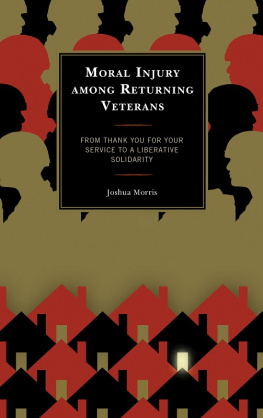
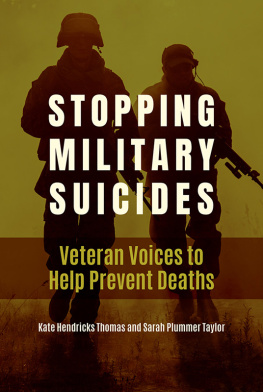

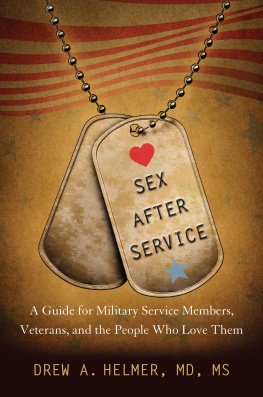
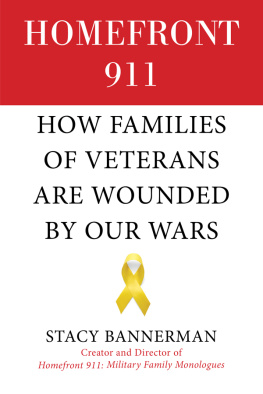
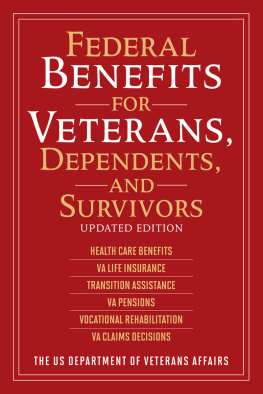
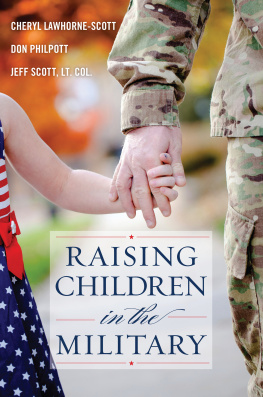

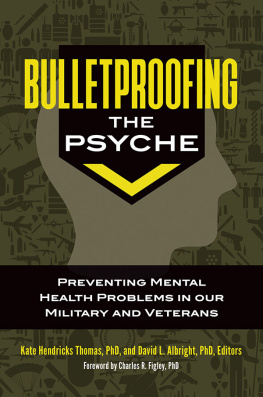
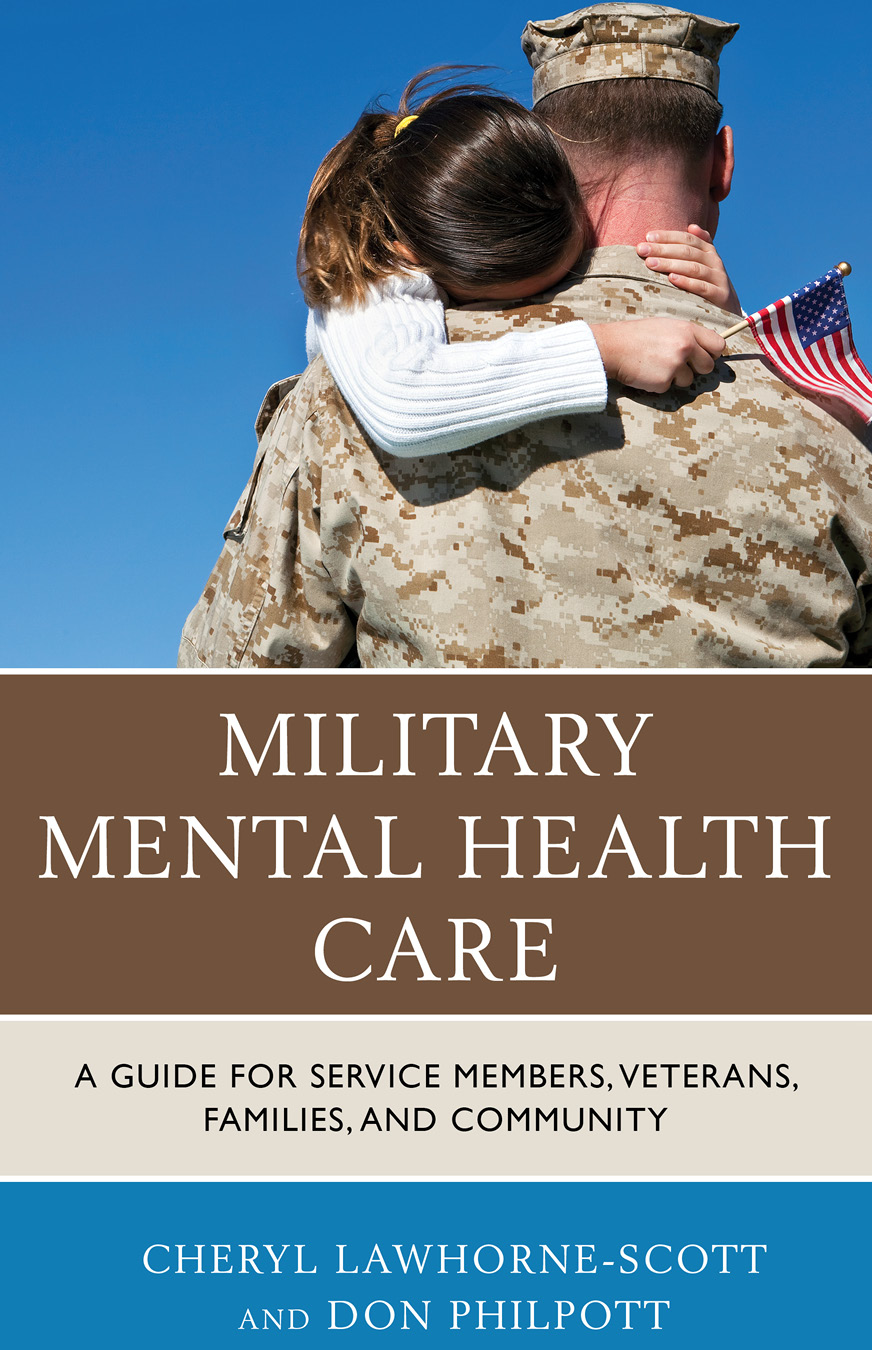
 The paper used in this publication meets the minimum requirements of American National Standard for Information SciencesPermanence of Paper for Printed Library Materials, ANSI/NISO Z39.48-1992.
The paper used in this publication meets the minimum requirements of American National Standard for Information SciencesPermanence of Paper for Printed Library Materials, ANSI/NISO Z39.48-1992.